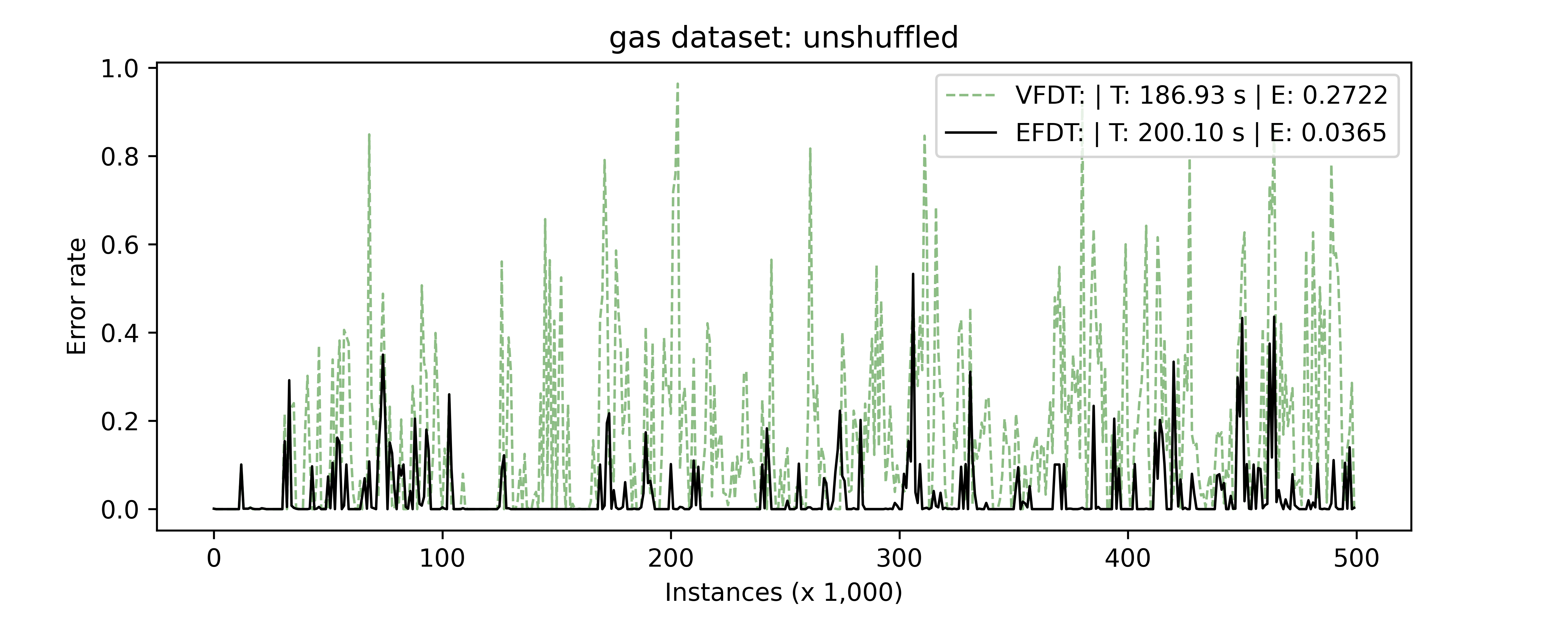Qi Li, Jialong Wu, Yishujie Zhao, Xinhao Xu
In this project, we reimplement the Hoeffding Tree and Hoeffding Anytime Tree, reproduce the experiments on UCI classification data sets and evaluate whether the conclusions from paper Extremely Fast Decision Tree are reproducible.
Our implementation uses python3 and the following packages are mainly required:
numpy
numba
tqdm
pyyaml
matplotlib
We compared VFDT and EFDT on 6 UCI classification dataset and one synthetic dataset.
Please refer to dataset directory.
You can execute main.py to quickly have a try mining specified data stream.
For example,
python main.py --dataset gas --tree v e --shuffle --verbose --plotallow you to mining on Gas sensors for home activity monitoring Data Set using VFDT and EFDT respectively.
Optional arguments:
--plot: to plot error rate curves after mining--verbose: to print progress bar and information during mining
For details, run python main.py -h
To reproduce our experiments, execute:
cd experiments
./exp_single_dataset.sh <dataset>
It may consume a long time (0.5~3h). After 22 runs(1 unshuffled stream and 10 shuffled streams for both VFDT and EFDT), <dataset>_final_unshuffle.png and <dataset>_final_10_shuffled_average.png will be saved in the same directory.
For example, here is gas_final_unshuffle.png:
- Domingos, Pedro, and Geoff Hulten. "Mining high-speed data streams." KDD 2000.
- Hulten, Geoff, Laurie Spencer, and Pedro Domingos. "Mining time-changing data streams." KDD 2001.
- Manapragada, Chaitanya, Geoffrey I. Webb, and Mahsa Salehi. "Extremely fast decision tree." KDD 2018.
- Moshe Lichman. UCI Machine Learning Repository. 2013. http://archive.ics.uci.edu/ml
We would like to thank Prof. Long and TAs for their devotion to ML Course.
If you have any questions, please contact Qi Li: liqi17@mails.tsinghua.edu.cn.

